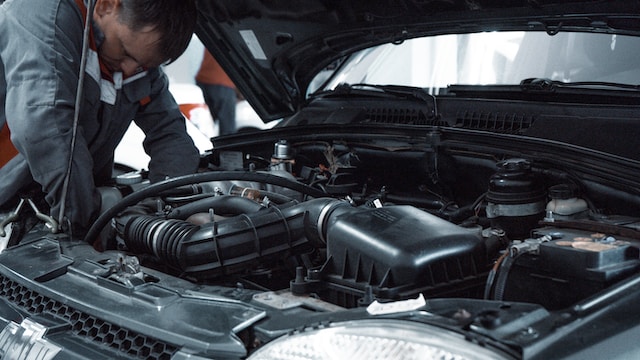
As a car owner, you will inevitably run into mechanical issues. These problems can be annoying and expensive, depending on whether they result from normal wear and tear, poor maintenance, or unforeseeable conditions. The choice of whether to repair or replace a certain component when dealing with automotive issues can be difficult. This article will examine five typical vehicle issues and debate whether repair or replacement is best.
- Engine Troubles
The engine is the most important part of any car; if it breaks down, the whole car can stop. Overheating, rough idling, and a lack of power are among the concerns that frequently occur with engines. Repairs, such as mending a defective sensor or replacing a worn-out gasket, are sometimes the best solution for addressing relatively small issues that arise with an engine. However, in the case of serious engine failures or problems that have worsened over time, replacement can be the more practical and cost-effective choice. The car’s performance and reliability can be greatly improved by installing a brand-new engine, which will also ensure that the vehicle will continue to provide comfortable rides for many more kilometers.
- Brake System Malfunctions
The braking mechanism in a vehicle is among the most important safety features that it can include. If you encounter spongy brakes, grinding noises, or prolonged stopping distances, you must solve the issue immediately. Depending on the severity of the damage, brake repairs can include replacing components such as brake pads, rotors, or calipers. Preventative maintenance and prompt repairs can significantly lengthen your brakes’ lifespan. However, if the braking system is badly affected or the vehicle is an older model, a full replacement can be the wisest alternative to guarantee excellent braking performance and protect the safety of the vehicle’s passengers.
- Transmission Issues
Transmission issues can express themselves in various ways, such as slipping gears, delayed engagement, or leaking fluid. Transmissions are notoriously difficult components to repair due to their importance and complexity. Repairs could be enough to solve the issue in certain circumstances, such as when it’s just a small leak. On the other hand, replacing it might be a better investment if the gearbox failure is severe or the vehicle is an older model with high mileage. A new transmission can perform better than an old one in terms of fuel efficiency, gear shifts, and overall performance.
- Suspension Complications
A lumpy and uncomfortable ride, poor handling, and uneven tire wear are potential outcomes of a suspension that needs repair. Broken springs, worn-out shocks or struts, and wheels that aren’t aligned properly are examples of common suspension problems. Repairs such as replacing components that have become worn could be sufficient for addressing minor suspension issues. However, if the suspension system has sustained significant damage or if the vehicle is an older model, it is possible that replacing the complete suspension setup will be more beneficial in terms of both performance and comfort, as well as cost savings in the long run.
- Electrical System Failures
Electrical systems in modern automobiles are very complex since they need to power various elements simultaneously, such as lighting, air conditioning, and information and entertainment systems. Problems with electrical systems might be brought on by bad wiring, depleted batteries, or alternators that aren’t working properly. Repairing a particular electrical component can be all that is required to rectify the situation in certain situations. Nevertheless, if the issues with the electrical system are widespread and impact a number of its components, purchasing a replacement can be the best course of action to take. A replacement electrical system can improve the vehicle’s dependability and lessen the possibility that it will experience electrical problems in the future.
- Tire Problems
Tires are an important safety feature because they are the only part of your car that touch the road. Tires are susceptible to wear and tear over time, which can result in a variety of problems including punctures, worn tread, and damaged sidewalls. When confronted with tire problems, it is vital to evaluate the extent of the damage and choose whether repair or replacement is the better option. For minor tire problems, such as small punctures or nails embedded in the tread, tire repair can be a suitable and cost-effective solution. Qualified shops that offer tire repair services can patch or plug the affected area, restoring the tire’s integrity and safety.
Conclusion
Dealing with automotive issues as a car owner is an unavoidable reality. It can be difficult to decide whether to fix or replace some parts. While replacements are sometimes the better option for catastrophic failures or aging cars, repairs can be affordable for small problems and newer vehicles. It’s important to weigh the pros and drawbacks of repair versus replacement when dealing with problems with the engine, brakes, gearbox, suspension, or electrical systems. Consider the severity of the issue and the general health of the car.


